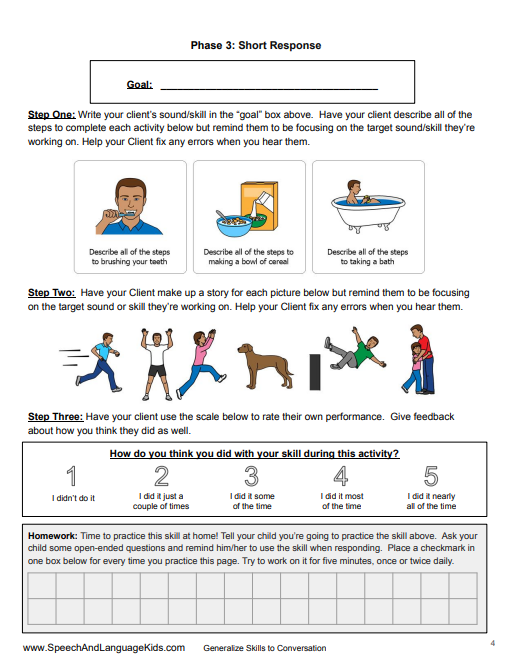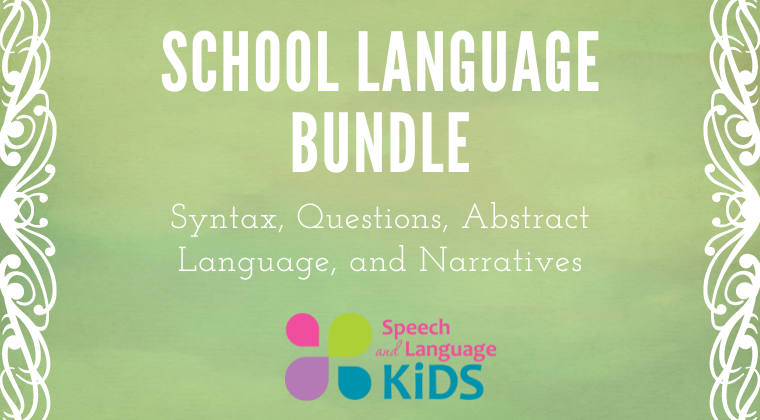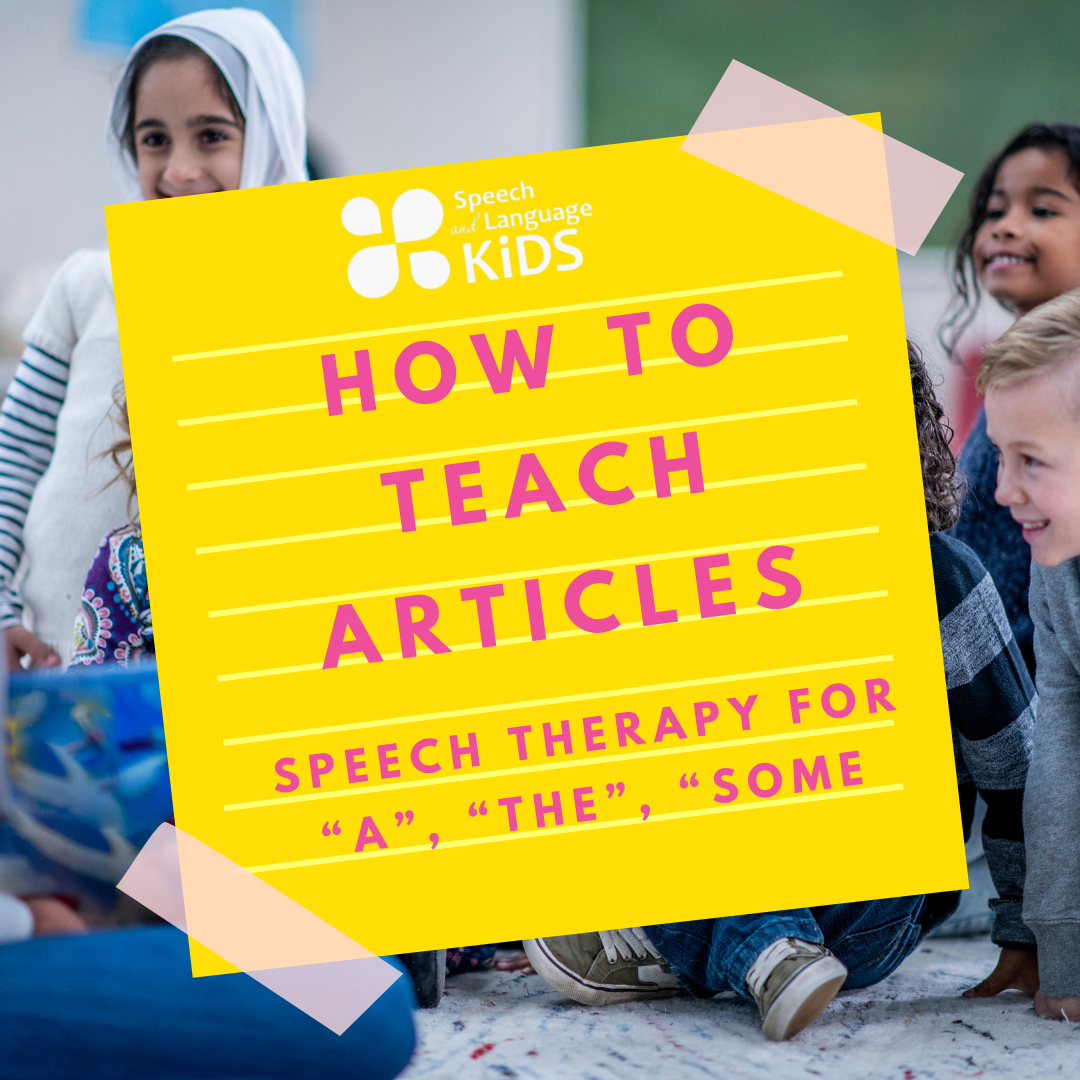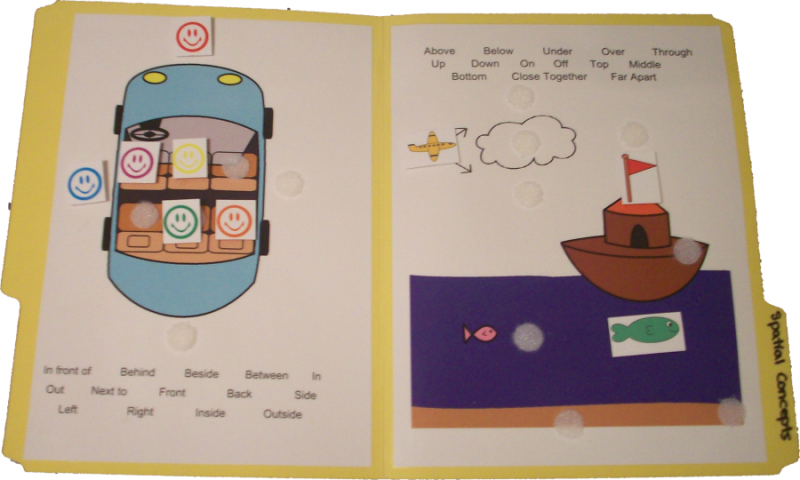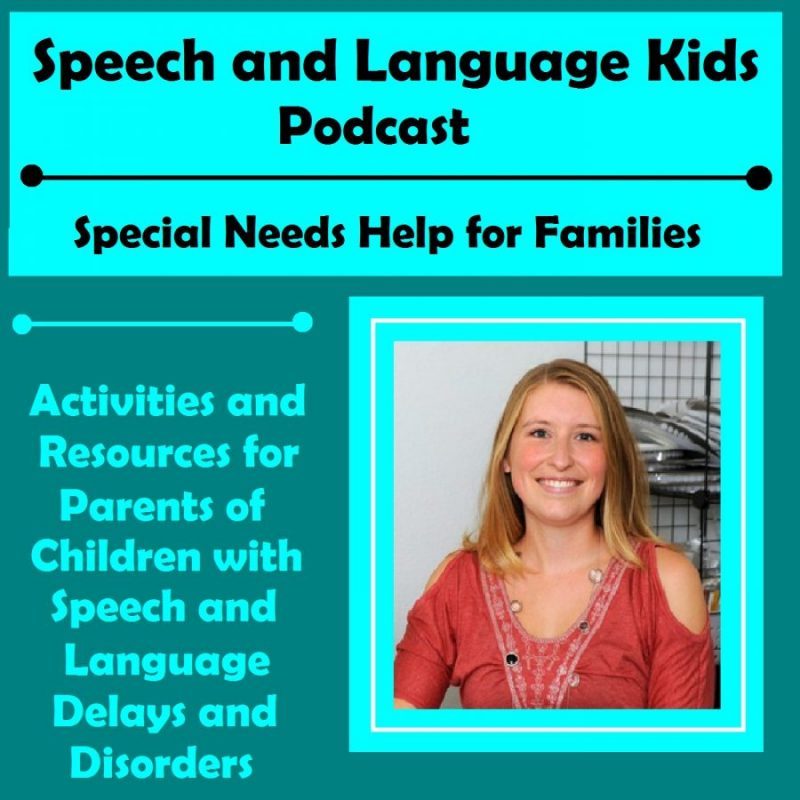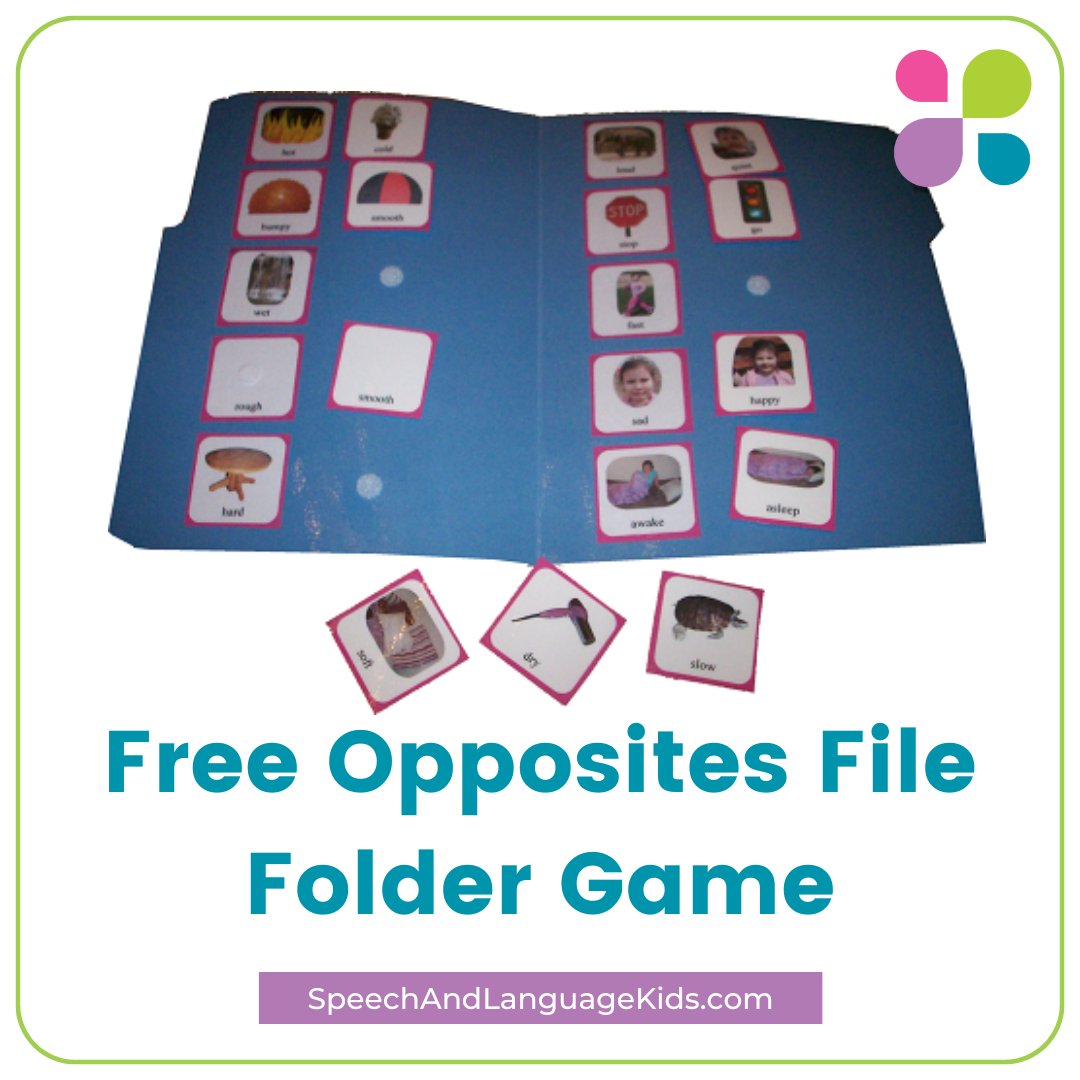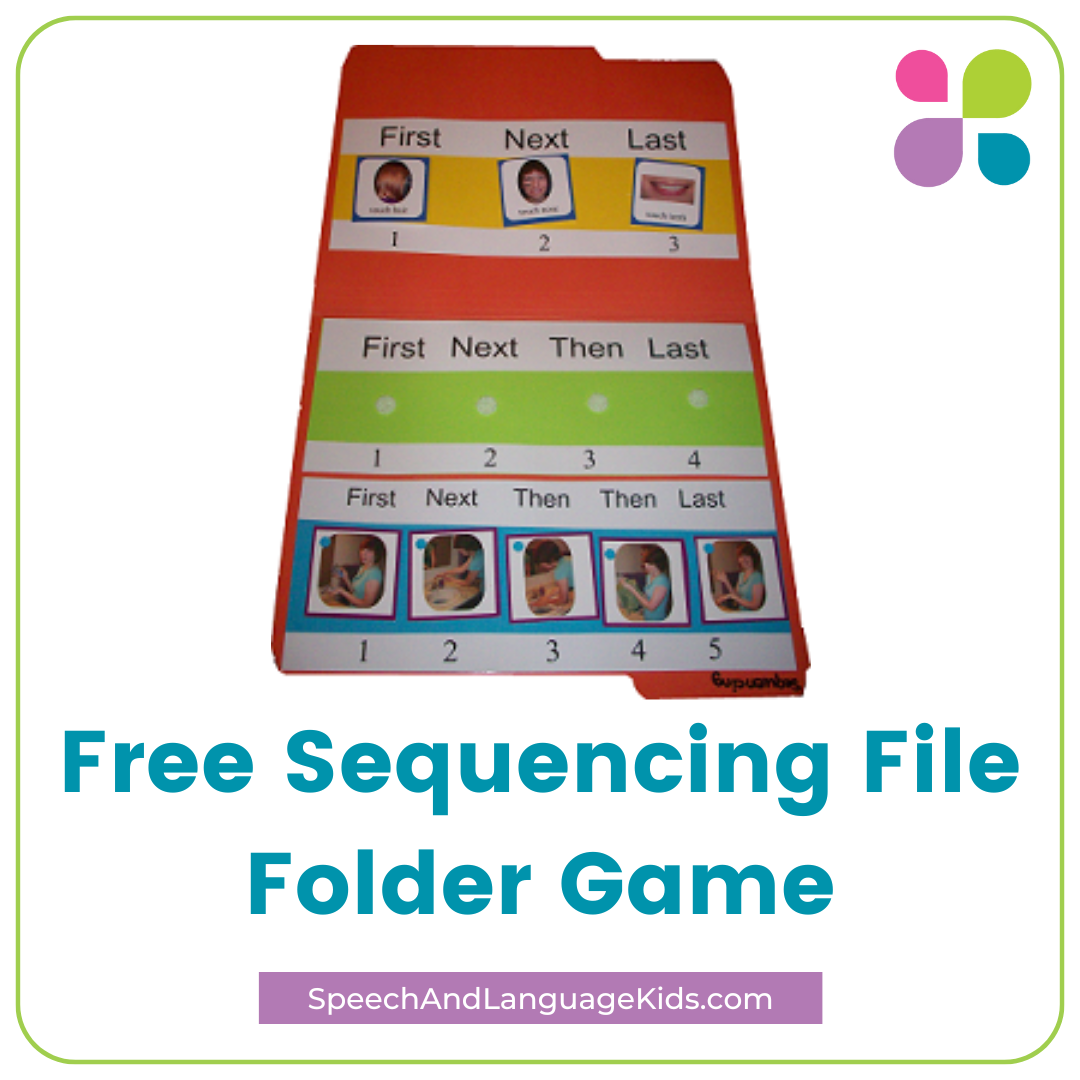Therapy Activities and Resources for Expressive Language Delays:
What is an Expressive Language Delay?
Expressive language delay (ELD) is a broad diagnosis that simply means that a child is having trouble using language in some way, shape, or form. Since this diagnosis is so broad, each child with this diagnosis looks very different. Some have difficulty putting words together to form sentences. Some have difficulty using the correct vocabulary and words. Others have difficulty sequencing information together into a logical manner. There are all types of different expressive language symptoms and each one is treated quite differently. This page will give you links to information that will help you with one of these areas.
What Help is Available for Children with Expressive Language Delays?
Language therapy from a certified speech-language pathologist can be crucial for children with expressive language delays. For whatever reason, these children are having trouble learning a particular part of language and they require additional assistance to pick that skill up.
However, there is no one-size-fits-all approach to expressive language delay therapy. Instead, the child’s specific problems within the category of “expressive language” are addressed. Each skill that the child is missing is taught explicitly. Instead of waiting to see if the child will learn that part of language on his own, the speech therapist jumps in and provides therapy to fix the problem.
How to Teach a Child Any New Skill By Fading Supports
Below are the different areas covered under “expressive language delay” and links to resources and activities that address that specific area.
Late Talkers
A child who is late to begin talking may be described as having an expressive language delay. For the young child who isn’t speaking yet, he has no expressive language (unless he is using sign language or another alternative means) so therapy is focused on increasing his ability to use language to communicate. Here is more information on late talkers:
How to Jump Start Your Late Talker: 8-Week Program for Late Talkers
Sequencing
Many children with expressive language delays have trouble organizing their language so that what they say makes logical sense. They may have trouble sequencing past events when telling a story or putting steps to an activity in a logical order. This can make their conversation very difficult to follow. Here are some activities and resources that are great for teaching sequencing skills:
Cooking Activities for Speech and Language (Following a recipe is great for sequencing!)
Cookie-Themed Activities for Speech and Language (More recipes and following directions in a sequence)
Sequencing Activities for your Morning Routine (Work it into your daily routines!)
Speech and Language Craft Activities (Take any craft and sequence the steps to it before and afterward)
Using Descriptors
Children with expressive language delay (ELD) can have difficulty using descriptors correctly. Descriptors like adjectives and adverbs can add color to our language and help us make our point more clearly, and in a more interesting manner. Children with ELD may either leave these words out all together or use them incorrectly. Here are some resources and activities for teaching descriptors:
Teaching Adjectives in 5 Easy Steps
4 Steps to Teaching a Spatial Concept
Using Vehicles for Spatial Concepts
Printable Spatial Concepts Game: Where Does It Go?
Printable Adjective Game: Tell Me About It
Road Trip Speech/Language BINGO
Grammar Skills
Many children with expressive language delay also have trouble with using correct grammar. They may omit grammatical markers or use them incorrectly. These are the smaller words and word parts that string together the larger words to make meaningful sentences. Without these words, the child’s speech may sound telegraphic or choppy. Teaching proper grammar is also a great way to increase sentence length for a child who speaks in very short sentences.
Click Here to See all of Carrie’s Grammar Resources
Pragmatics/Social Skills
A child may be described as having an expressive language delay if they have trouble with social skills, also known as pragmatics. These children may have difficulty knowing what language to use to interact appropriately with other children. Here are some resources on pragmatics and social skills:
Click Here to Find out More About Pragmatics and Social Skills
Echolalia: When Children Repeat What You Say
Answering and Asking Questions
The ability to answer questions correctly requires quite a bit of language skills. First, the child has to understand what the question being asked means. Then, the child must process that question and formulate an answer. Finally, the child must speak that answer in a logical manner. Children with expressive language delay often have difficulty with this process. They may also have difficulty asking questions with correct word order and in a coherent manner. Here are some resources for those children:
Click Here for Info on Teaching Questions
Vocabulary
Children with expressive language delay may also struggle to learn new words and expand their vocabularies. These children may need extra help to learn words, remember words, and recall them when they need to use them. Here are some great resources on vocabulary:
Click Here for Information about Vocabulary Development
Figurative Language
Children with language delays often have difficulty understanding and using figurative language such as idioms, similes, and metaphors. Click the link below to find out how to teach these to a child:
How to Teach Figurative Language
Making Inferences
Children with language delays often have difficulty making inferences about what’s going on around them or when they are reading. Click the link below to learn more about helping a child make inferences:
Selective Mutism
Selective mutism is when a child has the ability to speak and will speak in at least one setting (usually home) but refuses to speak in another setting (usually school and/or in public). Treatment for selective mutism is very different from treatment for other speech and language delays. To find out more about selective mutism, click the link below:
Browse All Expressive Language Articles:

About the Author: Carrie Clark, MA CCC-SLP
Hi, I’m Carrie! I’m a speech-language pathologist from Columbia, Missouri, USA. I’ve worked with children and teenagers of all ages in schools, preschools, and even my own private practice. I love digging through the research on speech and language topics and breaking it down into step-by-step plans for my followers.
Connect with Me:

